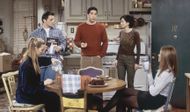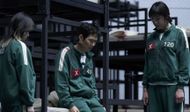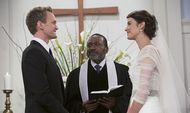People often think a popular show must be good. A show gets high ratings. It trends for weeks. Everyone posts about it. Suddenly, it becomes something people call a classic. But being everywhere does not mean the show is actually well made. Some series are just good at getting attention.
They rely on buzz. They have strong visuals. They may even start strong, but when you look closely, the writing often feels weak. The stories drag. The characters stop growing. The same problems repeat again and again.
This list looks at shows that got more credit than they deserved. These are not the worst shows on TV. They had moments that worked. But over time, they started showing cracks. People still watched them. That does not make the shows great. It just means they stayed popular.
Each pick on this list proves one thing. Just because a show is trending does not mean it holds up. Some leaned too much on nostalgia. Others had great starts and lost steam. Some played it safe for too long. These shows remind us that being everywhere does not always mean being worth it. Sometimes hype hides the truth. Sometimes, the love just is not earned.
Disclaimer: This list reflects a critical perspective on popular TV shows and is not intended to undermine personal enjoyment or fandom.
10 overrated TV shows that prove popularity doesn’t equal quality
1. Friends

Friends became one of the most-watched shows on television and still gets reruns worldwide. But its humor leaned on stereotypes and surface-level jokes. The show rarely gave its side characters depth. Most remained stuck in predictable routines and shallow arcs. Ross and Rachel's storyline dominated most of the plot.
The show takes place in New York, but it shows almost no diversity. Relationship dynamics often felt dated and forced. The laugh track filled every gap where genuine comedy was missing. Even die-hard fans now admit the writing does not hold up against modern sitcoms with stronger character work.
2. Riverdale

Riverdale opened as a dark twist on classic Archie Comics. The show started with a promise and a moody murder mystery that hooked viewers. But the plot quickly lost control and added increasingly bizarre storylines. From cults to superpowers to time travel, the show jumped genres without warning.
The characters became unrecognizable from one season to the next. The dialogue turned awkward and overly dramatic. Scenes felt like memes rather than part of a coherent story. The show stayed popular for its shock value but made little effort to maintain logic. The story often moved just for the sake of being unpredictable.
3. Emily in Paris

Emily in Paris presents itself as a light romantic comedy, but rarely delivers anything meaningful. The lead character makes the same mistakes and never grows from them. Her workplace drama feels staged, and her rise in the company lacks any sense of realism. The show skims over every challenge.
Paris is reduced to a backdrop filled with stereotypes. The French characters are exaggerated and one-dimensional. Fashion overshadows the writing. Scenes focus more on outfits than emotional development. The plot repeats each season and never adds depth. Its popularity relies more on its look than on anything it actually says.
4. 13 Reasons Why

The first season of 13 Reasons Why tackled serious issues with a bold concept. The show created strong reactions and opened debates around bullying and mental health. But everything after season one drifted into sensational territory. The tone grew darker, and the stakes became extreme for no real reason.
Later seasons of the show added trauma with no payoff. Plotlines like school shootings and hallucinations felt more like stunts than honest portrayals. Characters became inconsistent. Clay’s journey felt unstructured. The message of the original story got buried under shock tactics. The show stopped being thoughtful and started trying to provoke without purpose.
5. The Umbrella Academy

The Umbrella Academy began with a strange and stylish hook. A group of dysfunctional siblings with powers faced the end of the world. It had energy and flair. But each season repeated the same basic structure. Another apocalypse. Another attempt to fix it. The emotional stakes never really changed.
Character development stalled. Some, like Klaus, had moments of depth, but even that felt stretched by season three. Others faded into the background or changed too often. Pacing was slow, and storylines dragged. The show looked impressive, but the plot fell into a loop that never broke out of itself.
6. Ginny & Georgia

Ginny and Georgia wanted to mix teenage drama with criminal tension. The show aimed to be sharp and emotional. But the tone shifted without warning. One scene handled self-harm. The next one jumped to light romance. That imbalance made it hard to connect with the story. The writing lacked focus.
Georgia's backstory offered intrigue but often got buried under messy subplots. Characters vanished for episodes or changed direction with no buildup. Ginny's emotional responses felt random at times. The show tried to cover everything but spread itself too thin. It stayed binge-worthy but struggled to deliver anything solid.
7. Squid Games

Squid Game grabbed attention with its brutal and symbolic premise. The games were intense, and the stakes felt real. It tackled inequality and desperation. But as the story moved forward, the writing slipped. The second half lacked the sharp focus of the beginning. Key characters vanished or were underused.
The VIPs came off as cartoon villains. Their scenes felt disconnected from the rest of the show. The final twist added confusion rather than clarity. Gi-hun’s decisions in the last episode raised more questions than answers. The show had something important to say, but lost its grip by the end.
8. The Big Bang Theory

The Big Bang Theory ran for twelve seasons and had massive ratings. But its humor rarely changed. The show leaned on predictable setups. Nerds were awkward. Women were confusing. Jokes followed the same rhythm and punchlines. Characters stayed in the same loop for years with minimal growth.
Sheldon became the show’s main engine, but his traits were exaggerated beyond reason. Relationship stories started to replace science jokes. The emotional moments often felt forced. Its structure became a pattern. Audiences kept watching, but the writing never took risks. It stayed in its comfort zone long after it stopped being fresh.
9. How I Met Your Mother

How I Met Your Mother started with creative energy. It played with time and teased a big payoff. But that promise faded over time. The series dragged its central mystery for too long. Ted and Robin’s back-and-forth stalled the story. Their chemistry shifted with each new season.
The ending rushed through key events. Barney’s growth was undone in a single scene. The final twist felt lazy. It reversed years of work. Side characters got stuck in loops. Plot devices wore thin. Flashbacks became filler. The show had strong moments, but it often sacrificed its strength to keep the gimmick alive.
10. Stranger Things

Stranger Things came out swinging with a tight story and retro charm. The mystery felt grounded in Season One. Characters like Eleven and Hopper had clear arcs. But later seasons stretched the concept too far. Another monster arrived. Another government secret came out. The formula repeated itself.
New characters kept entering. Old ones got sidelined or changed roles. Entire subplots stalled the main story. Hopper’s time in Russia took up space but added little. Nostalgia turned into a crutch. The original spark faded under the weight of bigger battles. It kept its fame but lost the tightness that made it work.
These shows aren’t without merit, but their massive popularity often hides deeper flaws. Whether it’s repetitive storytelling, shallow character arcs, or style over substance, each series on this list proves that attention doesn’t always equal excellence. It’s okay to enjoy them, but it's also worth questioning if the hype truly matches the quality.
Follow for more updates.
